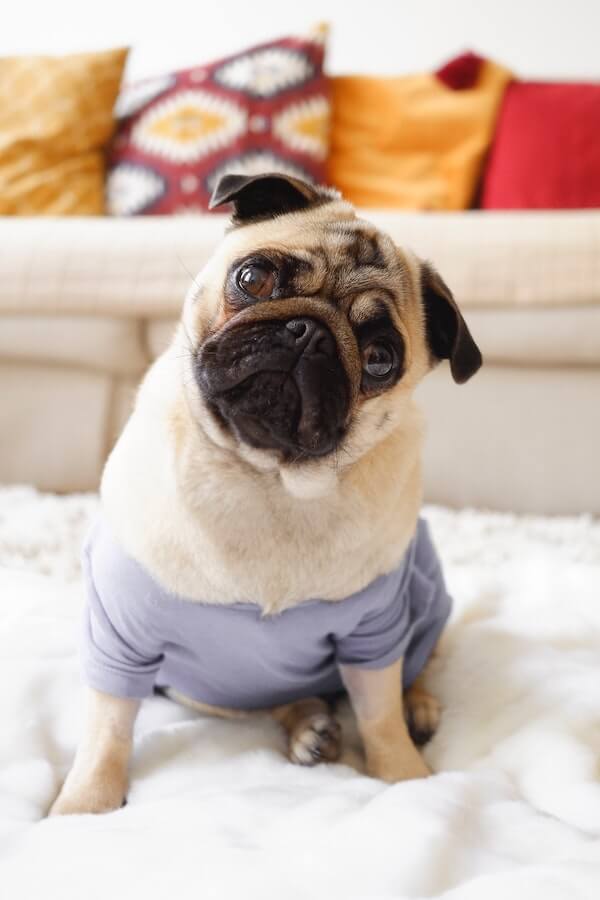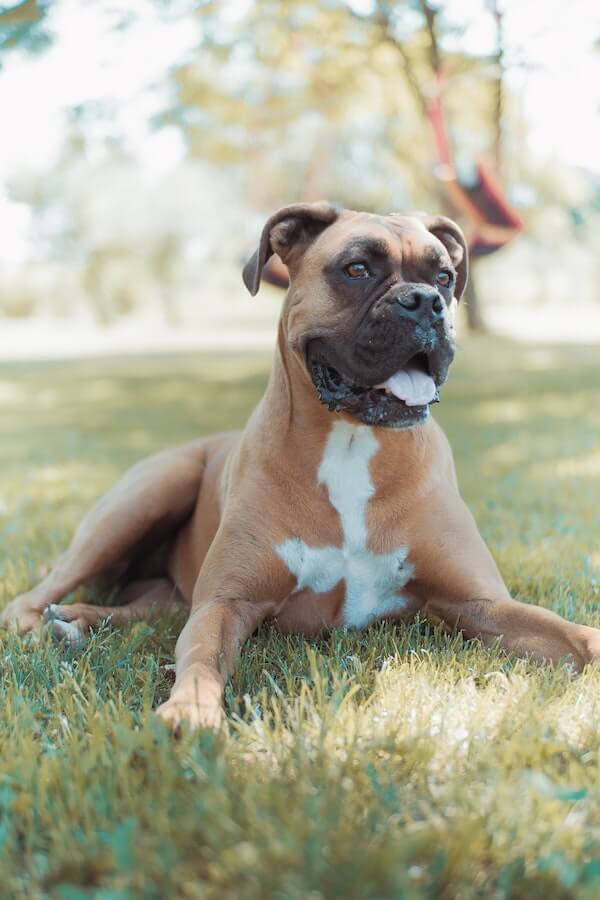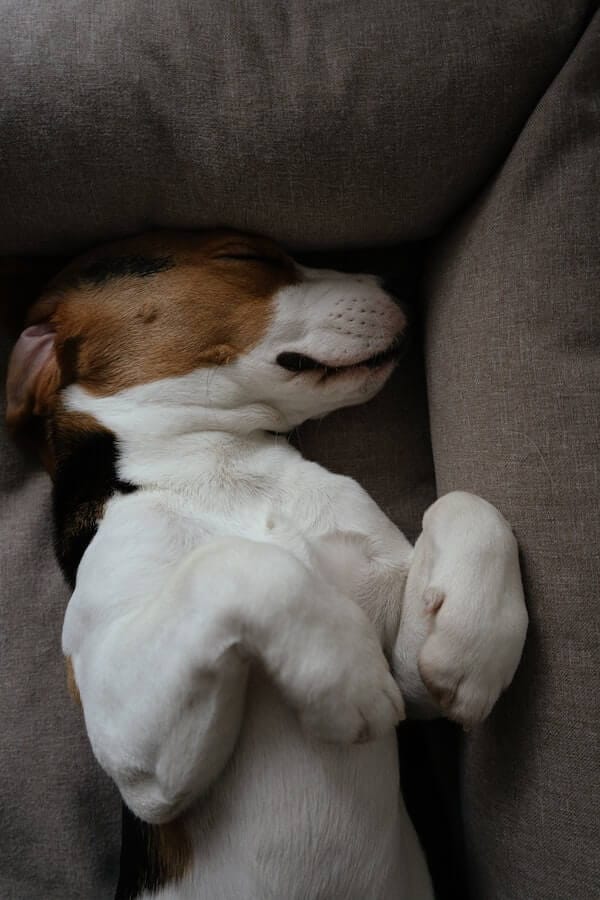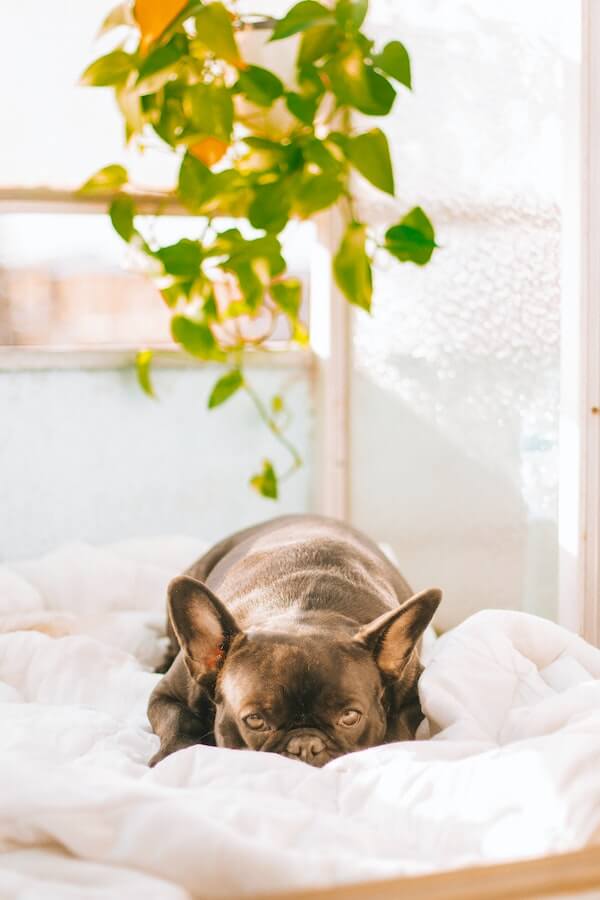
Dogs are well known for their snoring, but there are some dogs that snore a lot. These breeds have been known to snore louder than the average pup and can keep their owners up all night.
From the French Bulldog to the Pug, these dog breeds are sure to make some noise while they sleep.
So if you’re looking for a loyal companion that may also double as an alarm clock, then one of these snoring dogs might be just what you’re looking for!
What causes a dog to snore loudly?
Dog snoring is a phenomenon that may seem bizarre to us, but it’s normal for our furry friends.
Contrary to popular belief, canine snoring has nothing to do with how deep your pup sleeps; in fact, the real reason behind it has to do with their anatomy.
When dogs sleep, the muscles of their throat and soft palate relax.
This causes the tissues of these two areas to collapse onto each other, forming a partial blockage at the back of their throat — this is what we hear as snoring. It’s just like human snoring!
This blockage can be made worse if your dog’s nose or mouth is blocked due to allergies or colds.
Additionally, some breeds have longer, narrower skulls and soft palates that are more prone to collapse during sleep. This means that dogs like pugs and boxers are more likely to snore than other breeds.
Breeds of dogs that snore the most!
Let’s take a look at 8 dog breeds that are known for their excessive snoring. From bulldogs to pugs—and everything in between—let’s discuss why these jackhammers on four legs can be heard throughout the house!
1. Pug:

Pugs have short muzzles and a lot of loose skin in their face, which can restrict airflow and make them prone to snoring.
They also often have airway issues that contribute to the problem. Fortunately, there are products available that help pug owners battle this nocturnal nuisance.
2. Bulldog:
Bulldogs are lazy dog breeds known for having some significant breathing challenges due to their pushed-in faces and short noses.
Because of this, they usually end up snoring quite loudly! To help combat this issue, many bulldog owners opt for special beds designed to keep their dog’s airways open while they sleep.
3. Boxer:

Boxers have long muzzles and narrow airways, which often cause them to snore more than other breeds.
To help prevent the issue, many boxers are given special beds or pillows that provide greater support while they sleep.
4. Saint Bernard:
These large dogs have a large amount of loose skin in their face, which can lead to restricted airflow and snoring—especially when they’re sleeping on their back!
If you own one of these dogs, make sure you give them extra cushioning for their head and neck when they sleep.
5. Poodle:
Poodles usually snore due to the breed’s long noses and narrow airways. It also doesn’t help that many poodles are quite active, which can lead to more labored breathing while they’re at rest.
Taking steps like limiting exercise levels and providing better support for the head and neck during sleep can help reduce or eliminate poodle snoring.
6. Labrador Retriever:
Labradors usually snore due to their long muzzles and narrow airways. They also tend to overexert themselves during exercise, leading to extra snoring when they finally get some rest.
If your Lab is snoring too much, make sure you’re limiting their activity level and providing them with a comfortable bed or pillow for sleeping.
7. Beagle:

Beagles have short muzzles and narrow airways, so it’s no surprise that they often snore.
To help combat the problem, beagle owners can try providing their pup with a soft bed or pillow to keep their airways open while they sleep.
8. Shih Tzu:
Shih Tzus have small muzzles and flat faces, which can lead to restricted airflow—and consequently, loud snoring!
Special beds designed for brachycephalic dogs (those with short muzzles) are available, and these can help pups get a good night’s sleep without too much noise.
How to get a dog to stop snoring?
While you may be tempted to just buy them a noise machine and call it a day, there are actually some steps you can take to help reduce their snoring. Here are 5 tips for getting your dog to stop snoring:
1. Change their sleeping position
Many dogs sleep on their backs which can cause their airways to become blocked and lead to snoring.
Try having them sleep in a different position such as on their side or stomach so that they don’t compress the back of their throat as much.
2. Elevate their head while they sleep
If your dog is snoring, try putting a pillow under their head to elevate it so that their airways stay open as they sleep. Generally, dogs love to sleep under the covers, so they might end up snoring there too if their head is not elevated.
3. Clear the airways
Dogs can sometimes snore because of allergies and other respiratory issues.
Make sure you’re brushing them daily and wiping out their noses with saline solution or an alternative wipe regularly to help keep their airways clear.
4. Reduce excess weight gain
Extra weight can put pressure on your pet’s airway and make them more likely to snore so talk to your vet about a diet and exercise plan for your pup if necessary.
5. Get a humidifier for their room
Dry air can irritate the throat which can lead to snoring. Placing a humidifier in their sleeping area may help them breathe better and reduce snoring.
Conclusion

Now that you know about the dogs that snore, you can be prepared accordingly.
All of these breeds share one common trait: They all have narrow airways that make them more prone to snoring than other breeds.
This is why it’s important to provide your pup with a comfortable bed or pillow to help keep their airways open while they sleep.
With these simple steps, you can help reduce your dog’s snoring and turn those nights full of loud noises into peaceful slumbers!


GIPHY App Key not set. Please check settings